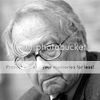- 22 May 2016 16:36
#14681625
I'm new to the forum and just wanted to see everyones' opinion on whether;
Spreading Autocracy can lead to peace.
What do we think? I do not believe in Democratic Peace Theory as the transitional stages often tend to be where conflict initiates. I am, however, pondering the thought of whether spreading autocracy can lead to peaceful relations between states.
For example let's look at Egypt- Mubarak, autocratic yet kept conflict out of Egypt for many years and maintained peaceful relations with the west. However as soon as Egypt began its transition this is where conflict arose. What do you think are the negatives of spreading autocracy to promote peace? Often, i think, autocratic leaders make much better decisions as they do not have to answer to the nation of think of the publics interests before they decide.
Spreading Autocracy can lead to peace.
What do we think? I do not believe in Democratic Peace Theory as the transitional stages often tend to be where conflict initiates. I am, however, pondering the thought of whether spreading autocracy can lead to peaceful relations between states.
For example let's look at Egypt- Mubarak, autocratic yet kept conflict out of Egypt for many years and maintained peaceful relations with the west. However as soon as Egypt began its transition this is where conflict arose. What do you think are the negatives of spreading autocracy to promote peace? Often, i think, autocratic leaders make much better decisions as they do not have to answer to the nation of think of the publics interests before they decide.
















 - By wat0n
- By wat0n